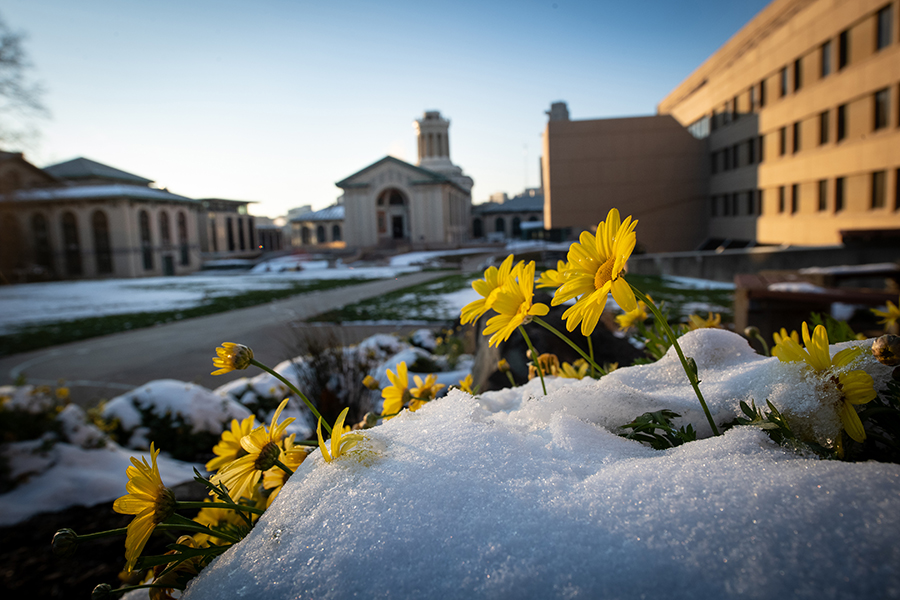Student Mental Health and Wellness: A Guide for Family Members
Families across the world have had to rapidly adapt to evolving changes in daily life due to the COVID-19 pandemic. This transition, along with the ambiguity that accompanies these circumstances, has increased feelings of fear, anxiety, loneliness and/or isolation and general emotional distress for all. If you or your student have experienced any of those feelings, know that you are not alone.
While the holidays are often a time for community, connection and gratitude for family and friends, we recognize that they may have looked different this year. Welcoming in a new year during a pandemic likely feels unusual, perhaps even stressful and unsettling, and so it is especially important for us to center care for self and overall well-being at this time.
Self-care means balancing the demands and stressors of life with nourishing experiences, and understanding that you cannot “pour from an empty cup.”
If you notice that your self-care scale is off balance, begin taking note of your current baseline for how you care for yourself. Then, think of one simple, specific, realistic self-care activity and make a plan for how you can regularly incorporate this activity or new skill into your life or daily routine.
Here are some suggestions for both you and your student to consider:
- Create times for rest. Explore the Counseling and Psychological Services (CaPS) newsletter on the Power of Rest (pdf), which includes tips, a reading list and links to many restorative resources.
- Be intentional about planning and scheduling time with friends and family you enjoy.
- Set boundaries and know it is okay to say no.
- Focus on what you can control.
- Plan some physical exercise ahead of time, like taking a walk.
- Create a routine for yourself. Do less, enjoy more.
- Limit time on social media.
- Try not to over schedule Zoom/Skype/Facetime calls.
When should you reach out to the University about your student?
We want our students to prioritize self-care, but we also recognize there are times that our students might reach a point of crisis, ranging from mild to life-threatening, obvious or subtle. If you feel your student is experiencing a psychological crisis, we recommend you take your concerns seriously and respond in a caring and immediate way.
Counseling and Psychological Services (CaPS) continues to provide services to students and families during this time of anxiety and uncertainty and is a constant resource for the CMU community. For crisis and urgent concerns about student mental health, CaPS on-call services are available 24/7 at 412-268-2922.
If you believe your student is an imminent danger to self or others, call the CMU Police Department (CMUPD) at 412-268-2323. If your student resides off campus, call Pittsburgh Police at 911 (if calling from Pittsburgh area) or 412-255-2927 (if calling from out of town).
If it is not a crisis situation, but you are concerned about your student’s well-being, unsure of where to turn or how to get them the appropriate resources, call Carnegie Mellon's Dean of Student’s office at 412-268-2075. Staff within the department will provide guidance and get the appropriate resources involved.
